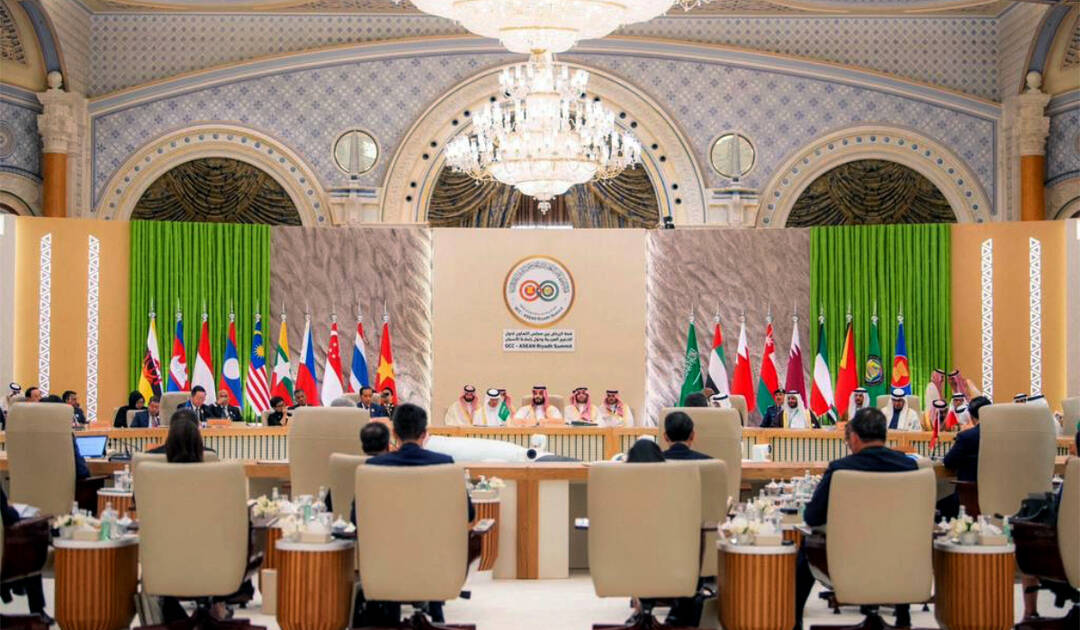Saudi Arabia hosted the Gulf Cooperation Council and the Association of Southeast Asian Nations summit in Riyadh on Oct. 20. The primary objective of the summit was to enhance economic ties between the member states of the GCC and ASEAN countries.
The GCC was established in 1981 by Saudi Arabia, the UAE, Bahrain, Oman, Qatar, and Kuwait. Its primary purpose is to facilitate coordination, integration, and interconnection among member states in both economic and non-economic domains to achieve unity.
The ASEAN was established in 1967 in Bangkok, Thailand, with the signing of the ASEAN Declaration (Bangkok Declaration) by Indonesia, Malaysia, the Philippines, Singapore, and Thailand. Brunei Darussalam joined the ASEAN in 1984, followed by Vietnam in 1995, Lao PDR and Myanmar in 1997, and Cambodia in 1999, bringing the total to 10 member states.
A joint statement was issued at the GCC and ASEAN summit, emphasizing the enhancement and development of economic ties between the two blocs. The statement also highlighted the commitment to leveraging growth opportunities through collaborative efforts.
I believe that the GCC and the ASEAN both offer abundant commercial opportunities and promising investment areas that can bring economic, social, and cultural benefits to both blocs.
The two blocs expressed their mutual interest in strengthening ties at both the multilateral and bilateral levels. This involves pursuing opportunities to establish sustainable supply chains in areas including food, energy, water security, green and renewable energy sources, technologies, and tourism infrastructure.
The ASEAN and the GCC have set a framework of cooperation for the period 2024-2028, which outlines measures to be jointly undertaken in areas of common interest for mutual benefit. These include political and security dialogue, trade and investment, people-to-people exchanges, education, culture, tourism, media, and sports.
It is expected that this framework will enhance trade and investment between the two blocs. The focus will be on sustainable infrastructure, renewables, petrochemicals, agriculture, manufacturing, healthcare, tourism, logistics, smart cities, connectivity, and digitalization.
Relations between the GCC and ASEAN countries date back to 1986, encompassing economic and cultural areas. To enhance the relationship between the two blocs, six specialized working teams were established at the summit, covering economy and trade, agricultural investment and food security, education, tourism, energy, culture, and media.
Trade between the GCC and ASEAN countries increased significantly in 2022, reaching $137 billion compared to $93.9 billion in 2019. This represents a 46 percent increase and brings the volume of trade with ASEAN countries to 8 percent of the total trade volume of the GCC.
I believe that the GCC and the ASEAN both offer abundant commercial opportunities and promising investment areas that can bring economic, social, and cultural benefits to both blocs.
• Talat Zaki Hafiz is an economist and financial analyst. X: @TalatHafiz














